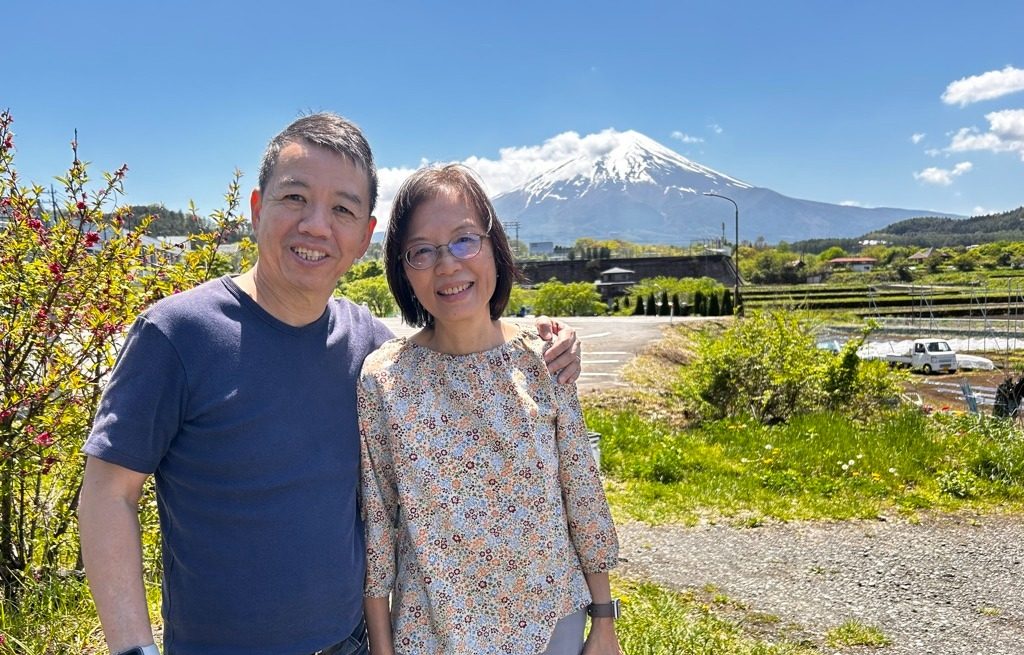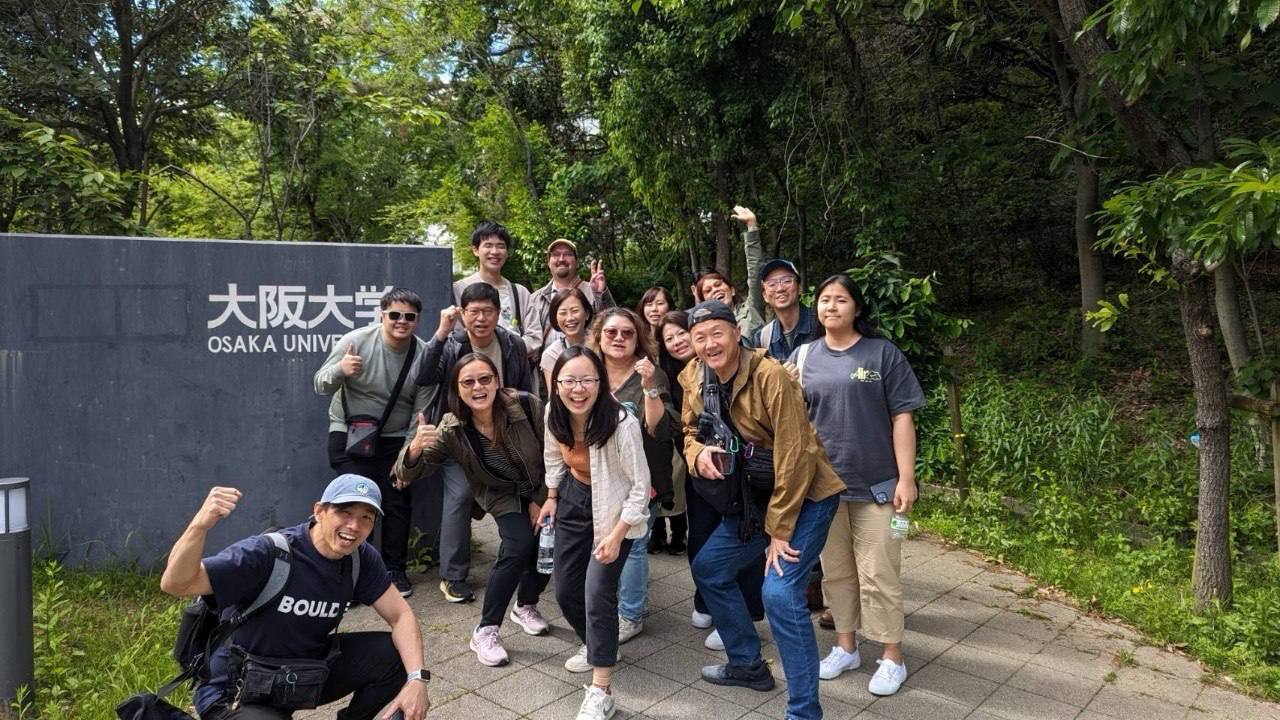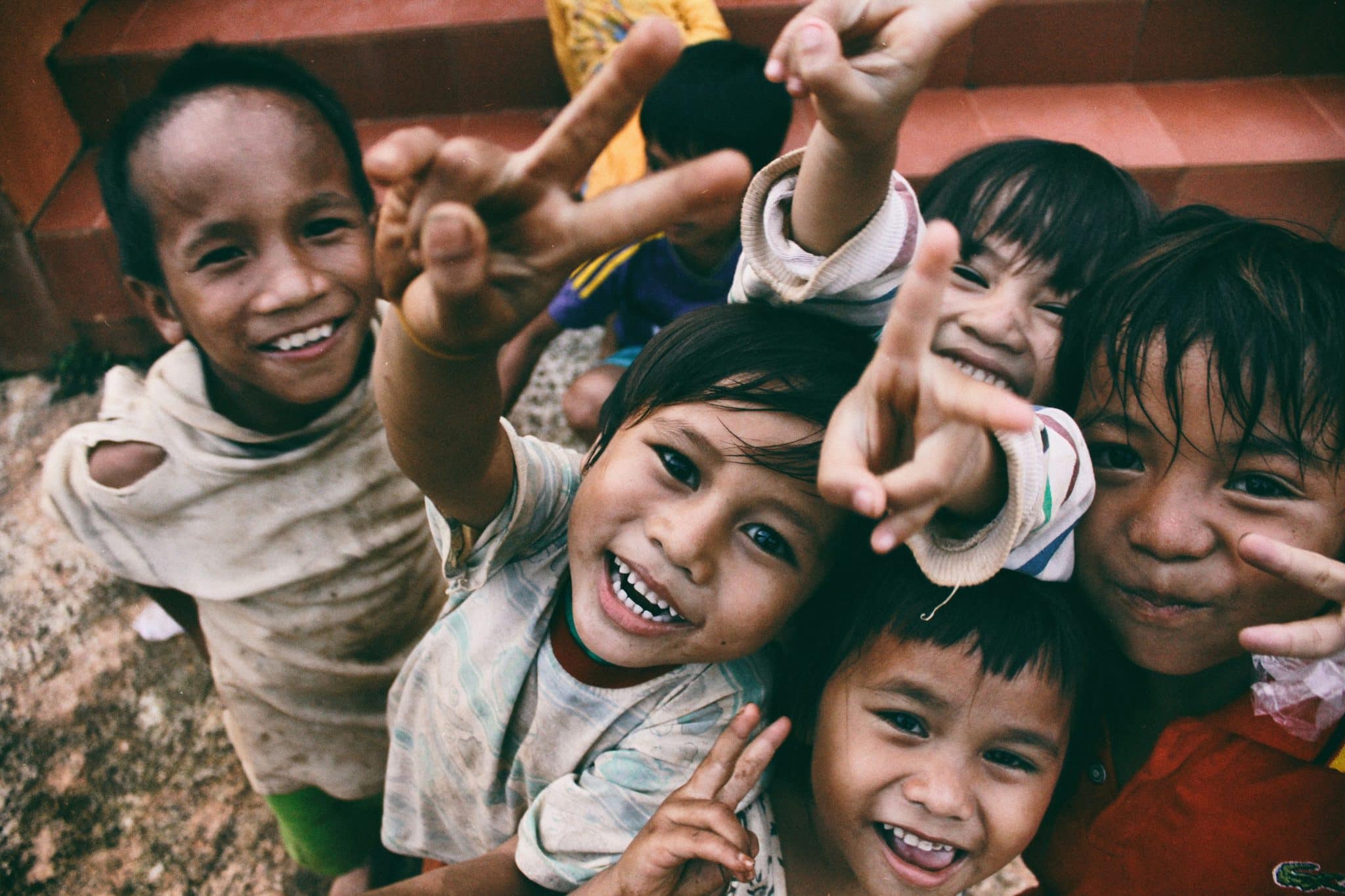“True courage stems from my hand in His”: Missionary Jemima Ooi on being tender-hearted to those who hurt in Africa
TRIGGER WARNING: This story contains descriptions of violence that some may find distressing.
by Tan Huey Ying // November 8, 2021, 7:45 pm
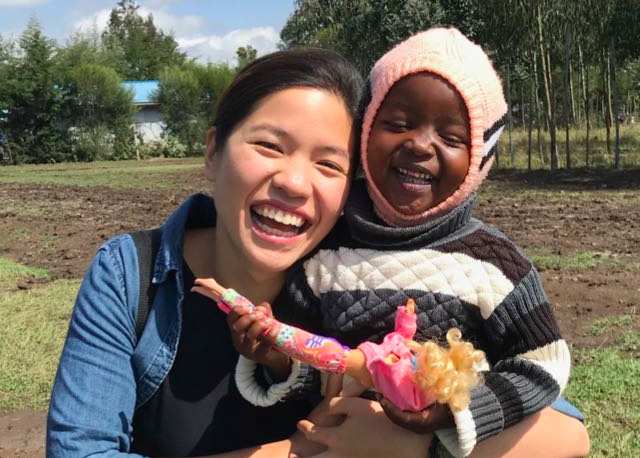
"In this world, maturity looks like independence. But in the Kingdom, maturity actually looks like dependency on God," says Jemima Ooi. All photos courtesy of Jemima Ooi.
Just several months ago, missionary Jemima Ooi, 33, was about to go to bed when she received an SOS from her ministry partners in an East African country.
There had been a massacre not far from where they worked.
Weeping and distraught, they had sent Jemima a video of what she described as “mass carnage”.
Jemima was one of three panellists speaking on Suffering, Co-Suffering and What Keeps You Going. The panel discussion was part of Courage Calls, a missions mobilisation conference organised by the Fellowship of Missional Organisations in Singapore and held in hybrid format – digitally and in-person.
Over three days in October, the speakers laid all cards on the table: The difficulties, pain and even failures of mission work. Yet through the honest and sobering dialogue on the form and substance of missions today, they re-issued the challenge to participants to answer God’s call to long-term overseas mission work.
The youngest in age amongst the three panellists, Jemima is, by no means, any less experienced.
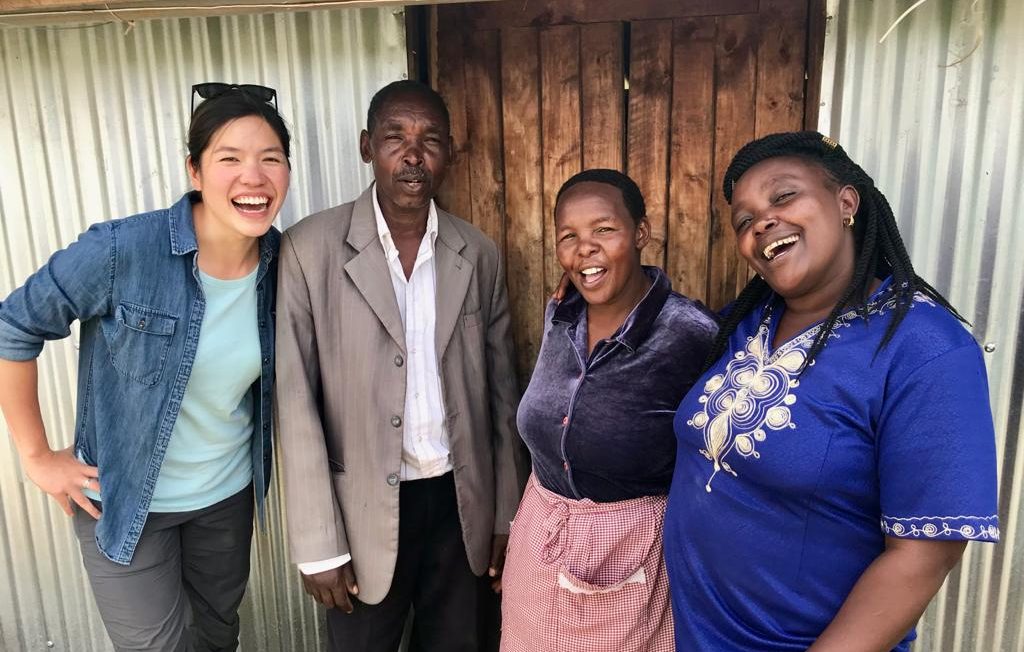
Jemima Ooi (left) at a refugee settlement in Kenya with a village elder, a refugee woman and her pastor’s wife. Last year, God enabled Jemima and her local leaders to triple the number of people they were feeding as they weathered the effects of a famine triggered by Covid.
In the last seven years, her pursuit of obedience to God’s call has taken her to serve Him in integrative mission work and rebuilding communities amongst the most painfully destitute of His people in Africa: Refugees, rape victims, HIV patients, and especially the survivors of genocides, massacres and even Ebola.
“The suffering of the people is tremendous,” she told the audience. “Many, if not all, have seen loved ones killed in front of their eyes.”
“There’s such a desperation for God’s love, provision and healing in these spaces.”
Giving an example of a little girl who watched her mother get raped and killed by rebel soldiers while she lay under the bed where she had been quickly hidden, Jemima said: “This kind of suffering that we see is, unfortunately, very frequent. And very common.”
Then there was the horror of the massacre. Even being back in Singapore during the global Covid outbreak did not distance her from the horrendous pain of those whom she ministers to.
Jemima apologised to the audience for the graphic nature of what she was about to share.
“The first frame of the video was of a woman who had been gutted open,” said Jemima. “Her insides were spilling out and her face was contorted in horror. It was etched into her features – that was how she died.”
The video was shaky and panicked, she added. Panning across scenes of people screaming and bloodied bodies lying around.
“I remember watching this and shaking in my bedroom and weeping over the suffering of our people.
“You see the suffering. You see it in their listless eyes. In the lifeless children who are so traumatised by the horrors they have seen that they become mute.
Desperation for God’s provision
“There’s such a desperation for God’s love, provision and healing in these spaces,” Jemima said.
Jemima works mainly in East Africa, in active conflict zones where there are “hundreds of rebel armies”, where the car she is travelling in could be worth more to a rebel soldier than her life.
In the panel discussion on Suffering, Co-Suffering and What Keeps You Going, Jemima addressed these risks and shared about her dependence on the wisdom of God.
Below is an excerpt. It has been lightly edited for clarity and length.
How have you managed to sustain your work amidst such intense suffering where your own life is constantly at risk? And where the wisdom of God is needed even in the simple decisions of when to leave or enter a certain area?
I was once in an interview with a Norwegian – they are very straight-talkers – who opened with this question: “What happens if you die? And if you die, what type of testimony would that be?”
For a while, I was stunned. Then I said: “I think there’s a difference between first-century Christianity and First World Christianity.
“In first-century Christianity, all the disciples were martyred – with the exception of John, who was boiled in a pot of oil. They were in it for what they can give.
Every time my family says goodbye to me at the airport, we all know it might be the last time that we see each other.
“But sometimes, in our First World Christianity, we are in it for what we can get.”
For a long time, I was trying to reconcile believing in God’s ability to provide and protect me but also recognising that if my life was required of me, I had to be ready.
No soldier goes into a war zone without making peace with that prospect of death. I didn’t want to be double-minded; I needed a sure footing in my mind and heart to ground me.
That’s when I began to realise that there’s a difference between belief and attitude.
I believe He can save us; He can protect us; His arm is not short to save. But at the same time, if I perish, I perish.
That was what God gave to me when I first went into that space. He said: “Jem, if you want to follow Me into these spaces, you need to have the attitude of Esther, ‘If I die, I die; but what if I was made for such a time as this?'”
It wasn’t that God was saying I was going to die. But in hindsight, I realise that God did not want me to fear death.
When we fear, you’re essentially saying to the spirit of death: “You’re more powerful than me, I bow down to you.”
It’s painful to keep leaving. But the beauty of that is we’ve entered into a greater reality together.
Of course, it isn’t easy.
It’s not as dramatic as signing your death warrant, but my family gets very quiet in the days before I leave for the field. Every time I go and my family says goodbye to me at the airport, there’s a lot of unspoken things between us.
The truth is, we all know that it might be the last time that we see each other. So we have to keep coming to terms with it every time.
It’s painful to keep leaving. But the beauty of that is we’ve entered into a greater reality together. Where we realise that this world is not our home and we’re all just pilgrims passing through.
When we have that reality that is centred on eternity, life becomes a lot more simpler.
But what can you do in the face of suffering?
You might be feeling: “I have no grit for that kind of suffering”. Or “I feel so under-equipped, how am I going to sustain in this kind of environment if God calls me there?”
To be honest, I felt that way too.
It’s okay to not have the answers. To stand quietly with the broken, holding their hand, looking to God.
I felt very inadequate in a new setting with a foreign language. In a space with so much pain, I felt totally bamboozled and helpless. And that’s where the Holy Spirit reminded me about what Solomon, the wisest man who ever lived, had prayed: “God, I’m like a little child. I don’t know how to go out or how to come in.” (1 Kings 3:7)
The temptation in these places of suffering is to power through, and muster up some sort of bravado. But unfortunately, when we do that, we become very prescriptive: We try to fix things or we try to have all the answers. Then people feel like they are the problem. And in that process, we negate the pain of the people and their suffering.
But I realised, all that helplessness in not knowing what to do? It actually was a seedbed for me to learn to be totally dependent on God.
And I just want to encourage our hearts here:
It’s okay to feel finite. To not know anything. To not have the answers. To stand quietly with the broken, holding their hand but looking to God.
Because the truth is, in this world, maturity looks like independence. But in the Kingdom, maturity actually looks like dependency on God. It’s in that place (of dependency) that we grow the most and we mature the most.
All of life – wherever we live it – is about oneness with God.
How do we distinguish risk vs our own adventurous folly in answering the call of God?
Don’t come unless you hear very clearly from God. There’s no guarantee on your life. The best assurance is God’s assurance. Hear clearly and know that God has prepared you for that space.
He prepares you for it, He guides your heart, He grows you into that space.
God speaks in surround sound. He can say one thing in many, many different ways – enough for you to have clarity. Especially if you’re entering into life-threatening spaces.
There’s a difference between a fantasy and a dream from God.
A fantasy is a bit escapist in nature. It’s very der-der-der (she hums the first few notes from Star Wars). But a dream from God? He prepares you for it, He guides your heart, He grows you into that space. He surrounds you with the right and necessary people as sentinels along your way. You know that these did not come from your own hand, but the hand of God. This is how you know with a confidence, that this is what God is calling you to.
But I also resonate with what was said about calculated risks. Because sometimes, there are chances of you wanting to power up and say, “I’m not scared”.
Calculated risk, wisdom from God – it’s very important.
What do you have to say to young people who have the desire to head out into places where they may encounter and witness suffering in communities?
Especially if you’re going to hard places, I emphasise the importance of metabolising hardship.
Hardship has to be metabolised, broken down. You have to get the waste products out of your system and hold on to the treasures hidden in dark places.
Hardship has to be metabolised, broken down.
What differentiates the sages (those who have lost husbands and children and are still able to carry on in their faith) from the cynics (people who have gone through hard things and end up being more hard-hearted or calloused), is the fact that they metabolised hardship with God.
They went through the valley of weeping, and allowed God to make it springs of life that other people can drink from in their own journey (Psalm 84:5-7).
That’s very important for longevity.
What are some convictions that you would impart to the next generation of young missionaries?
First, it is hard, but your family also has to go on the journey with you.
It was not easy for my parents to release me – especially into a war zone. But I realise, when I was out there – when it’s just you and God amidst crazy suffering – how important it was to have my family alongside me in that. Even if it’s just to be able to connect with them and feel their support over WhatsApp.
That’s where true courage stems from: my hand in His.
You can be ready, but it might take your family some time to go on their journey. Give them that space to do that and really pray that you will have their blessings as you go. As much as possible.
Secondly, let God love you. Let God pursue your heart. Know what it is like to be in such close communion with God. Establish that relationship and history with God even here in Singapore, so that you know how to lean on Him when times get tough. Develop the kind of sacred pathways that will enable you to settle into His presence.
Because the truth is, there’s very little you can bring with you in your 23kg of luggage that can secure you for the road ahead.
What has to be there is your deep-seated standing and relationship with God that will allow you to transcend any circumstance. Sometimes, you can have bullets dju-dju-dju-dju (she makes the sound of a gun being fired rapidly) going off around the neighbourhood. At other times, you don’t know if that sound was a bomb or just thunder.
I do feel very loved by God. And that’s the only thing that will drive out fear.
In that kind of spaces, one of the most precious memories I have is hearing God singing over me.
Have you ever woken up with a song in your heart? When you just know: It is God singing over you.
I just feel His presence and His comfort and I know He is holding me. In those moments – even if it were to be the last moment of my life – I know that I would be found in Him. That’s like the inner journey that really secures you for life outside.
People tell me: “Oh, you must be very courageous.”
I don’t think I’m very courageous, but I do feel very loved by God. And that’s the only thing that will drive out fear. That’s where true courage stems from: My hand in His. It allows us to be tender-hearted, to feel the hurting, knowing that He has got my heart.
And that every night, when I go to sleep, He restores my soul.
RELATED STORIES:
Would you let your daughter go to Congo and Rwanda? “It’s our honour,” say this missionary’s parents
“What kind of people are you?”: Despite being cheated, robbed and detained, their love never waned
OTHER STORIES FROM THE COURAGE CALLS CONFERENCE:
We are an independent, non-profit organisation that relies on the generosity of our readers, such as yourself, to continue serving the kingdom. Every dollar donated goes directly back into our editorial coverage.
Would you consider partnering with us in our kingdom work by supporting us financially, either as a one-off donation, or a recurring pledge?
Support Salt&Light